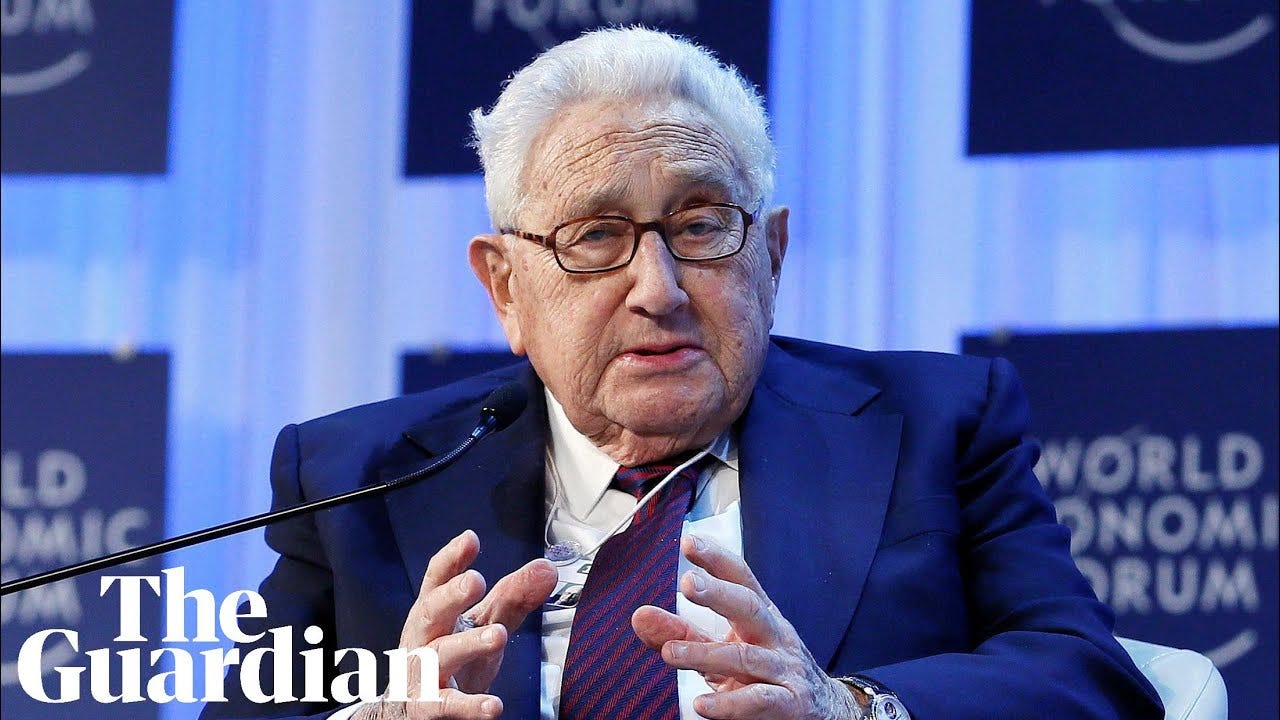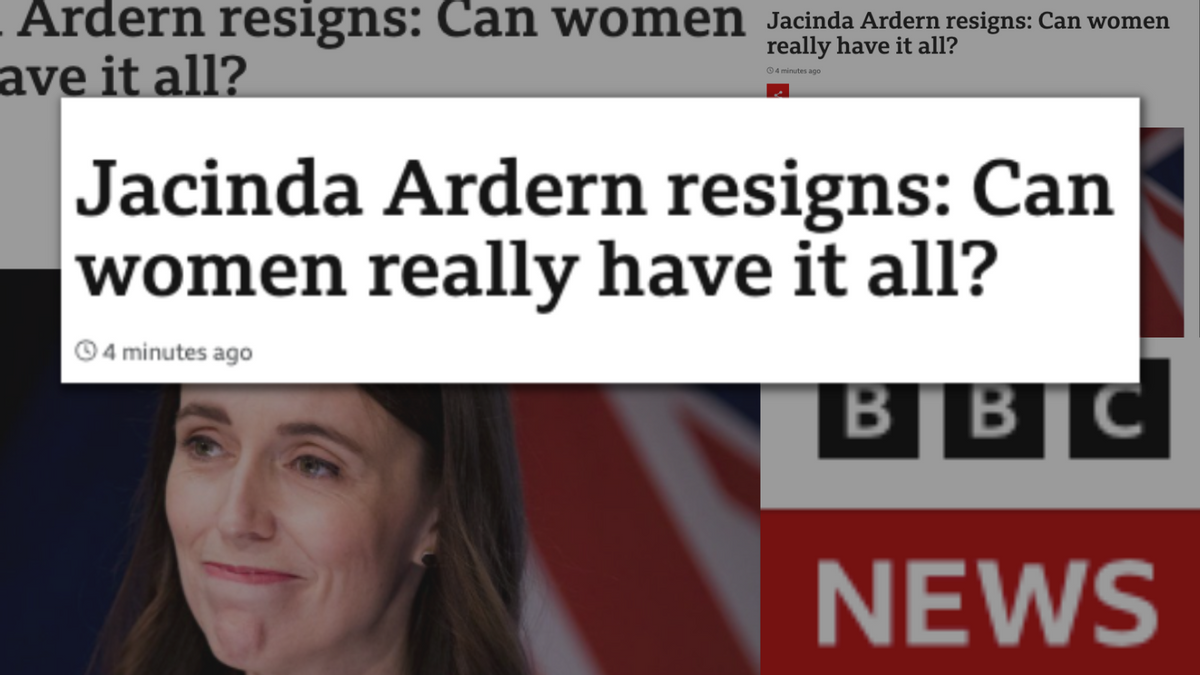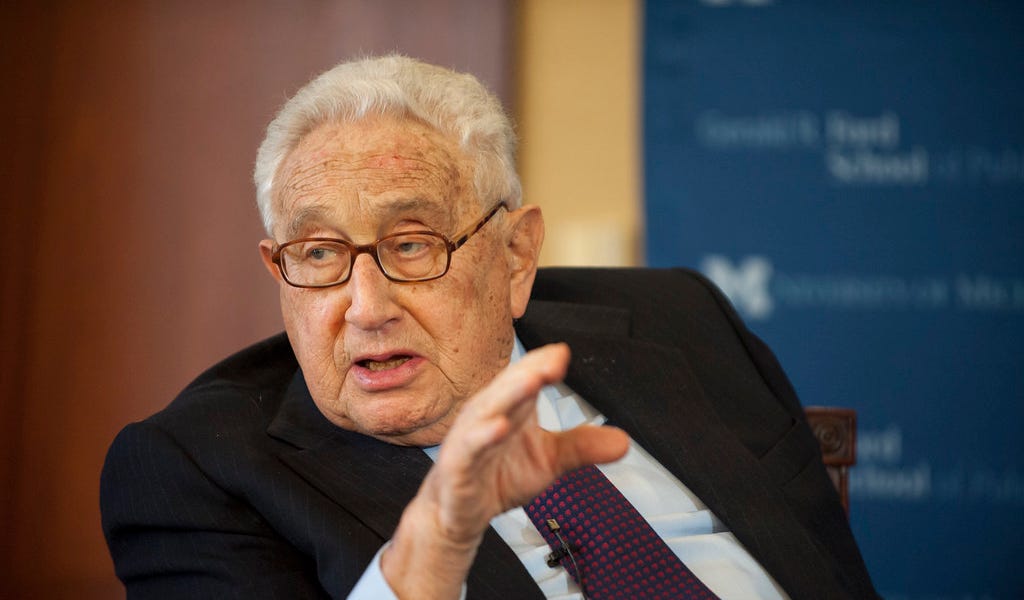
No, Davos is not a secret plan to raise a stadium of babies in Matrix-style incubator pods, as some Twitter
users supposed — prompting a
fact check from Reuters.
The real Davos conspiracy is hiding in plain sight and it’s pretty much the kind of pro-business agenda you’d expect from a bunch of billionaire Fortune 500 CEOs, heads of state and central bankers meeting at a ski resort in the Swiss Alps. A
recent article on the World Economic Forum’s website about “the Davos Agenda” gives you the basic idea: “We desperately need to disrupt our approach to retirement saving.” People are living longer, you see, so they’ll “want to work past mandatory retirement age…while others will need to work longer to remain financially resilient in later life.”
In other words, grandma’s going to have to go back to work.
It doesn’t say that explicitly of course, instead relying on the bloodless, euphemistic language that is the province of economists. “The traditional three stage life of school, work and retirement no longer functions in an age of unprecedented longevity and shifts in work and health outcomes,” the article concludes. That’s the real Davos agenda: business friendly proposals so banal that even the most insidious ones pass without notice. I’ve reviewed a bunch of Davos panels so you don’t have to, and here are the most evil parts.
- An Entire Panel on “Quiet Quitting”
“Quiet quitting” is the idea that discontented workers are checking out at work and driving productivity down, a disputed phenomenon but which some employers believe has picked up ever since the pandemic. (Perhaps they haven’t seen Office Space or any of the countless 2000’s-era movies and TV shows depicting a protagonist whose animating conflict is hating their job.) Consisting of CEOs from Vimeo, Mercer and Wipro, the panel represents a “tough crowd” for blaming the phenomenon on bosses, cracked moderator Ben Smith, founder of Semafor.
Solutions for the scourge of quiet quitting
are discussed and include connecting with employees by doing everything from CEOs sending workers video messages — “so you can get their emotion and nuance instead of reading an email,” explains Vimeo CEO Anjali Sudi — to conducting hourlong, open-ended meetings with no agenda; and stressing the business’s contributions to charity in order to motivate employees. Wipro CEO Thierry Delaporte insists that the “number one reason for the people to really be happy at Wipro is the fact that two thirds of the equity ownership goes to a philanthropic trust…and they can take pride [in] that.”
The consensus opinion is that company culture is how to keep people from quiet quitting — the obvious solution, better pay, apparently overrated. “It's not just your body, it's your heart,” said Sudi. “And you will get so much better work out of somebody if they feel part of the culture and mission.”
“You'll sometimes see people say they think that the mission stuff is sort of a con and sort of a trick by employers…so that they don't have to do these things [offer better pay],” suggested Smith. “And I'm curious if you see those things in tension.”
“I've never thought about them in tension,” Sudi bluntly replied.
- Senators Kyrsten Sinema and Joe Manchin High Fiving Over Blocking Biden’s Agenda
Senators Sinema and Manchin, fresh off an entire congressional term spent blocking key parts of President Biden’s legislative agenda, speaking at Davos did an up-high to commemorate the obstruction.
During the panel, Sinema rues that “neither Speaker has ever shown interest in recent years of collaborating with the moderates in other parties,” comparing former Speaker Pelosi to Republican Speaker McCarthy. “They go, my way or the highway. Pelosi did it, McCarthy's doing it. This is not healthy for democracy.”
“And we still don’t agree on getting rid of the filibuster?” Sen. Manchin, seated next to her, asked.
“That’s correct!” Sinema chirped, briskly high-fiving him.
“The Democratic Party shared a narrative that said we would not have any more free and fair elections in this country if the United States Congress didn't eliminate the filibuster and pass a massive voting rights package,”
Sinema continued. “Joe [Manchin] and I were not interested in sacrificing that important guardrail for the institution.”
Something else they apparently aren’t interested in is passing any substantive legislation this term since the filibuster’s 60-vote threshold makes that all but impossible.
- Bringing Jobs Back Would Be Too Costly
Sen. Chris Coons (D-DE) and WEF president Børge Brende — himself a former Conservative Norwegian politician —
agree protectionism would strengthen supply chains and reduce political extremism by bringing jobs back but deem it too costly to seriously pursue.
“If we go too much into this notion of friendshoring or more protectionist measures, we can shave off a lot of growth globally,” said Brende. “How far will the US go in French shoring, making sure that things goes to Mexico and countries that you're allied with?”
Amazingly, Coons acknowledges the harmful effects of unfettered free trade: “The reach and the scope of globalization that have caused a backlash in many of our countries. A populist backlash, certainly in the United States need to be addressed. One of the ways to deal with some of our challenges in terms of the hemisphere and migration. Also is to do some nearshoring to improve the job opportunities in Central America, for example.”
After acknowledging these grave problems, though, Coons goes on to say they’re sticking with free trade anyway. “But I don't think it will be as robust as potentially projected,” Coons said. “I do think that we will continue to have an open economy, to be committed to free trade and to see the robust value that globalization has brought to the world, as well as to many of our people.”
- Henry Kissinger Speaks on Peace
No Davos summit would be complete without wheeling out global war hawks’ grand wizard, Henry Kissinger. Now a 99-year-old, the gray Kissinger looks like the picture of Dorian Gray by the end of the novel. Henry Kissinger played a central role in the secret bombing of Cambodia — which killed an estimated 100,000 civilians — along with other later atrocities like the Argentine Dirty War, and overthrow of Chilean president Salvador Allende, so I guess it makes sense that they’d be
interested in his “historical perspectives on war”.
But the moderator was also interested in Kissinger’s thoughts on peace.
“You've drilled down deeper on the challenges of war and peace than any other person I can identify,” said Harvard professor of government Graham Allison, without a hint of irony. Since then, Allison adds, Kissinger has “continued thinking and writing about the challenges of building a peaceful world order.”
- The “Infomercial” for Saudi Arabia
“This is basically an infomercial for Saudi Arabia,”
tweeted Politico reporter Alex Ward, referring to a Davos panel about the desert kingdom featuring a bevy of top Saudi government officials and bearing the complimentary title, “Saudi Arabia’s Transformation in a Changing Global Context” — a reference to the purported transformation brought on by Saudi Arabia’s de facto ruler, crown prince Mohammed bin Salman.
In
the panel, Fred Kempe, president of the powerful Washington think tank the Atlantic Council, calls Saudi Arabia’s Minister of Finance, Mohammed Al-Jadaan, a “rockstar.”
“I hope that's an accepted thing to call someone in Saudi Arabia, but you really are highly respected by all of your peers,” Kempe said, Al-Jadaan beaming.
The United Arab Emirates, Saudi Arabia’s closest ally, is a top donor to the Atlantic Council. This week, CNBC issued an embarrassing retroactive
update to an op-ed written by Kempe defending the appointment of the CEO for the UAE’s state oil company to head the United Nations’ climate summit, in order to reflect the Atlantic Council’s financial interest.
“
Editor’s note: This article and headline were updated to reflect the fact that the Abu Dhabi National Oil Company and Masdar are major sponsors of the Atlantic Council’s Global Energy Forum. Sultan Al Jaber is CEO of ADNOC and chairman of renewable energy investing firm Masdar. The financial relationship between the companies and Atlantic Council as well as the obvious conflict of interest were not disclosed to CNBC prior to publication of this column and does not meet our standards of transparency.”






